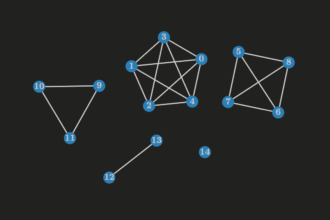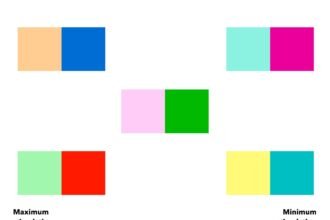Introduction
Life satisfaction doesn’t happen by accident. It’s the result of intentional choices, mindful habits, and strategic improvements across different areas of your existence. Research shows that 40% of your happiness comes from activities you choose to do, meaning you have significant control over your quality of life.
This comprehensive guide will help you assess where you stand today and provide actionable strategies to enhance your physical health, mental well-being, relationships, and career. You’ll discover tools and resources that can support your journey, plus real examples of people who have successfully transformed their lives using these principles.
The path to a better life starts with understanding where you are now and taking deliberate steps toward where you want to be.
Understanding Your Current Life Quality
Before making improvements, you need an honest assessment of where you stand. Life quality encompasses multiple dimensions that work together to create your overall sense of well-being.
Start with a simple life wheel exercise. Draw a circle and divide it into eight sections: physical health, mental health, relationships, career, finances, personal growth, recreation, and environment. Rate each area from 1-10, then connect the dots. This visual representation shows which areas need the most attention.
Consider keeping a daily mood and energy journal for one week. Note your energy levels, mood, and satisfaction in different areas throughout each day. Patterns will emerge that reveal your strongest and weakest areas.
Ask yourself these key questions: What activities make you feel most alive? When do you feel most stressed or drained? Which relationships energize you versus those that exhaust you? What aspects of your current life would you change if you could?
This baseline assessment becomes your roadmap for improvement.
Key Areas That Impact Life Quality
Physical Health: Your Foundation
Your body is the vehicle that carries you through life. When it’s running well, everything else becomes easier. Poor physical health creates a domino effect that impacts mood, energy, relationships, and productivity.
Focus on three core pillars: nutrition, movement, and sleep. You don’t need perfect habits just consistent ones that support your energy and well-being.
Mental Well-Being: Your Inner Landscape
Mental health affects how you perceive and respond to life’s challenges. It includes your emotional regulation, stress management, mindset, and overall psychological resilience.
Building mental fitness requires the same intentional approach as physical fitness. It involves developing coping strategies, practicing mindfulness, and maintaining perspective during difficult times.
Relationships: Your Support System
Humans are social beings. The quality of your relationships with family, friends, romantic partners, and colleagues significantly impacts your life satisfaction. Strong relationships provide emotional support, reduce stress, and increase longevity.
This includes your relationship with yourself. Self-compassion and self-awareness form the foundation for healthy connections with others.
Career and Purpose: Your Daily Mission
How you spend your working hours affects your overall life satisfaction. This doesn’t mean you need to love every moment of your job, but finding meaning and growth in your work contributes significantly to quality of life.
Purpose extends beyond paid work to include volunteer activities, hobbies, and ways you contribute to your community or causes you care about.
Actionable Strategies for Each Area
Physical Health Improvements
Exercise Routines That Stick
Start with 10 minutes of movement daily rather than ambitious hour-long workouts. Choose activities you enjoy—dancing, hiking, swimming, or even vigorous cleaning counts. Consistency beats intensity for long-term success.
Try the “exercise snacking” approach: three 10-minute movement sessions throughout your day. Take stairs instead of elevators, walk during phone calls, or do bodyweight exercises during TV commercial breaks.
Nutrition Without Obsession
Focus on adding nutritious foods rather than restricting everything you enjoy. Aim to fill half your plate with vegetables and fruits, include protein with each meal, and stay hydrated throughout the day.
Meal prep doesn’t have to be complicated. Prepare ingredients in batches—wash and chop vegetables, cook grains in bulk, or prepare protein portions that can be mixed and matched throughout the week.
Sleep Optimization
Create a consistent sleep schedule, even on weekends. Develop a wind-down routine that signals bedtime to your brain: dim lights, put away screens, and engage in calming activities like reading or gentle stretching.
Your bedroom should be cool, dark, and quiet. Consider blackout curtains, a white noise machine, or earplugs if needed.
Mental Well-Being Strategies
Mindfulness Techniques
Start with five minutes of daily meditation using apps like Headspace or Calm. Even this small amount can reduce stress and improve focus over time.
Practice the “5-4-3-2-1” grounding technique when feeling overwhelmed: identify 5 things you can see, 4 you can touch, 3 you can hear, 2 you can smell, and 1 you can taste. This brings you back to the present moment.
Stress Management
Develop a “stress toolkit” with techniques that work for you: deep breathing exercises, progressive muscle relaxation, journaling, or calling a friend. Having multiple options prepared means you can choose what fits the situation.
Learn to distinguish between stress you can control and stress you cannot. Focus your energy on controllable factors while practicing acceptance of what’s beyond your influence.
Building Resilience
Reframe challenges as growth opportunities. When facing difficulties, ask “What can I learn from this?” rather than “Why is this happening to me?”
Build a daily gratitude practice. Write down three things you’re grateful for each day, focusing on specific details rather than general statements.
Relationship Enhancement
Communication Skills
Practice active listening by giving others your full attention without planning your response. Reflect back what you hear to ensure understanding before sharing your own perspective.
Use “I” statements when discussing problems: “I feel frustrated when…” rather than “You always…” This reduces defensiveness and opens up constructive dialogue.
Building Deeper Connections
Schedule regular one-on-one time with important people in your life. Put away devices and focus entirely on being present with them.
Share vulnerabilities appropriately. Opening up about your struggles and fears creates deeper intimacy and often encourages others to do the same.
Setting Healthy Boundaries
Learn to say no to requests that don’t align with your priorities or values. You can decline graciously: “I appreciate you thinking of me, but I won’t be able to commit to that right now.”
Identify relationships that consistently drain your energy and consider whether they need boundaries or distance.
Career Development Resources
Skill Building
Identify 2-3 skills that would advance your career or increase your job satisfaction. Use online platforms like LinkedIn Learning, Coursera, or industry-specific training programs.
Seek feedback regularly from supervisors, colleagues, and clients. Ask specific questions: “What’s one thing I could do differently to improve my presentations?” rather than general requests for feedback.
Finding Purpose in Work
Connect your daily tasks to larger goals or values. If you work in customer service, focus on how you’re helping people solve problems. If you’re in finance, consider how you’re contributing to organizational stability.
Look for ways to mentor others, contribute to company culture, or take on projects that energize you.
Tools and Resources from NoBullSwipe
NoBullSwipe offers several resources that align with boosting life quality through sustainable living and mindful choices:
Sustainable Living Guides
The site’s focus on eco-friendly practices connects to life quality by creating a more intentional lifestyle. Sustainable choices often lead to reduced consumption, less clutter, and greater mindfulness about daily decisions.
Minimalist Home Decor Resources
A simplified, organized living space reduces stress and increases focus. NoBullSwipe’s minimalist decor guides help create environments that support mental clarity and peace.
Green Technology Updates
Staying informed about sustainable technology helps you make choices that align with environmental values while often saving money and reducing maintenance stress.
Community Connection
The site’s emphasis on honest, straightforward advice creates a community of people committed to authentic improvement rather than superficial changes.
Real Success Stories
Sarah’s Physical Transformation
Sarah, a 34-year-old marketing manager, struggled with low energy and poor sleep. She started with NoBullSwipe’s minimalist bedroom decor principles, creating a calming sleep environment. Combined with a simple 15-minute morning walk routine, she increased her energy levels by 40% within two months.
“The simplified bedroom made such a difference,” Sarah reports. “Without clutter and distractions, I actually look forward to bedtime. The morning walks give me mental clarity for the entire day.”
Mark’s Relationship Breakthrough
Mark used sustainable living principles from NoBullSwipe to create shared goals with his partner. They committed to reducing waste together, which sparked deeper conversations about values and future plans.
“Working toward sustainability goals gave us something meaningful to focus on together,” Mark explains. “It improved our communication because we had to coordinate and support each other’s efforts.”
Jennifer’s Career Pivot
Jennifer discovered her passion for environmental advocacy through NoBullSwipe’s green technology articles. She transitioned from corporate law to environmental consulting, finding greater purpose and job satisfaction.
“Reading about sustainable innovations made me realize I wanted to be part of the solution,” Jennifer shares. “The career change was scary, but aligning my work with my values has been life-changing.”
Frequently Asked Questions
How long does it take to see improvements in life quality?
Small changes can create noticeable improvements within 2-4 weeks. Significant transformations typically take 3-6 months of consistent effort. The key is starting with manageable changes and building momentum over time.
What if I don’t have time for self-improvement activities?
Start with micro-habits that take less than 5 minutes: drink a glass of water upon waking, take three deep breaths before stressful meetings, or write one sentence of gratitude before bed. These small actions compound over time.
How do I stay motivated when progress feels slow?
Track both process goals (actions you take) and outcome goals (results you want). Celebrating consistent actions helps maintain motivation even when outcomes take time to appear. Keep a weekly review of what’s working and what needs adjustment.
Can improving one area of life really affect others?
Yes, life areas are interconnected. Better sleep improves mood and decision-making. Stronger relationships reduce stress. Regular exercise boosts confidence and energy for career challenges. Starting with one area often creates positive ripple effects.
What’s the most impactful change I can make?
The most impactful change is the one you’ll actually maintain. Choose something that feels challenging but achievable, aligns with your values, and addresses your biggest pain point. For most people, improving sleep quality creates the foundation for other improvements.
Creating Your Life Quality Action Plan
Sustainable improvement happens through consistent, manageable steps rather than dramatic overhauls. Choose 1-2 areas from this guide that resonated most with you. Set specific, measurable goals for the next 30 days.
Your action plan might look like: “I will walk for 15 minutes every morning before work” (physical health) and “I will put my phone in another room during dinner to focus on family conversation” (relationships).
Review your progress weekly and adjust as needed. Small, consistent improvements compound over time, creating significant life quality enhancements within months rather than years.
The tools, strategies, and community at NoBullSwipe can support your journey toward a more intentional, satisfying life. Start with one change today your future self will thank you for taking that first step.








